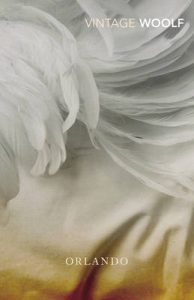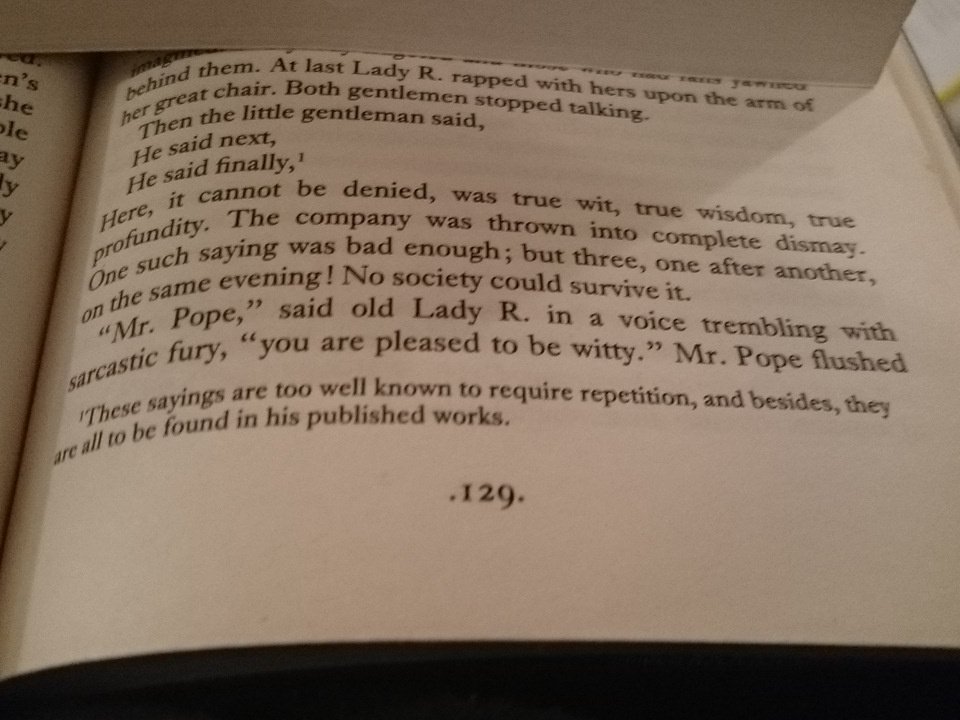 Time for another post on #Woolfalong, Heavenali’s year-long celebration of Virginia Woolf, who was a new writer to me at the start of 2016 and is fast becoming a favourite. The theme for July and August is ‘biography’; Orlando is included as an option, despite really being a novel – and I had a copy on my shelves, so that was what I went for.
Time for another post on #Woolfalong, Heavenali’s year-long celebration of Virginia Woolf, who was a new writer to me at the start of 2016 and is fast becoming a favourite. The theme for July and August is ‘biography’; Orlando is included as an option, despite really being a novel – and I had a copy on my shelves, so that was what I went for.
I’m not going to try to encompass everything I could say about Orlando in this post. I just want to pick out a couple of things that have most struck me. The first has to do with the book’s subtitle: ‘A Biography’. Chances are you will know the premise, but just in case you don’t: Orlando narrates the story of a young nobleman who becomes a favourite of Elizabeth I, then ambassador to Constantinople, where he transforms into a woman; she then lives on into the 20th century, without visibly ageing. The novel is framed as a biography, and is written in the style of one. But I started to realise that there’s more to it than this – the biographical form is fundamental to what Orlando is.
It’s another example of how Woolf uses writing to create alternatives to geographical space in her fiction. I first came across this in Mrs Dalloway, which places its characters within a landscape of consciousness: most of the key events occur at the level of thought and perception, but the way the book is written puts these on the same level as events that take place in physical streets and houses.
In the case of Orlando, Woolf creates a landscape of time. This is where the biography form is key, because the point of historical biography is that the individual is a subject is a fixed point, and the rest of history happens around them. Orlando is an individual who moves through time like others move through space, and the prose is elastic enough to facilitate that: months or years may pass in a few lines, but Orlando is always there and the book will reorient around her. This is what gives the experience of reading Orlando such a feeling of openness.
The other thing I want to mention – and I haven’t come across this much in Woolf’s work so far, certainly not to the same degree – is that Orlando is very funny. Much of its humour comes from Woolf’s sly reminders that we are reading fiction. For example:
I’m not exactly unfamiliar with the idea of fiction reminding me that it’s fiction, but I’ve rarely seen it done with Woolf’s lightness of touch (and Orlando predates most of the other examples that I’ve read). It’s as though she’s stretching the reality of her text a little too far, just for a short time – a toy to be picked up and discarded again.
With my last couple of #Woolfalong reads, I wasn’t quite as taken as with Mrs Dalloway; but now I’m right back up there, and eager to read more Woolf.
Book details (Foyles affiliate links)
Orlando: A Biography (1928) by Virginia Woolf, Vintage Classics paperback
Mrs Dalloway (1925) by Virginia Woolf, Vintage Classics paperbackA new post

28th August 2016 at 1:40 pm
I agree about the humour. I read Orlando for the first time this year and it was a pleasant surprise. Until towards the end I felt the characterstic ‘Woolf style’ of writing was missing. I really enjoyed the lyrical beauty of the prose.
28th August 2016 at 2:23 pm
Excellent point – Woolf’s humour is wonderful in Orlando, and it’s not a quality she’s usually known for!
29th August 2016 at 11:59 am
I really struggle with Orlando. I love it up until the end where it disappears in a mind-bending flurry and I know this is intentional but it makes it feel like a slog. However, up until that point it is brilliant. I was lucky enough to see it performed at the Royal Exchange Theatre in Manchester with Suranne Jones as Orlando and it translates beautifully on to the stage.
7th September 2016 at 12:59 pm
I plan to read this one as my next Woolf. I’m glad to see you address the humour, as I was rather hoping for that. I liked Mrs Dalloway more than you and I really liked too To the Lighthouse, but I wouldn’t quite describe either as funny (not that I expected or wanted them to be, but it makes for a nice change).
If you can say without saying too much (since I don’t know how it ends) how did you get along with the “mind-bending flurry” that bookbii refers to?
17th October 2016 at 10:35 pm
Hi, I’m catching up on old comments (I’m a long way behind!). I’m intrigued by all these comments about the ending, because to be honest, I didn’t notice any difference…